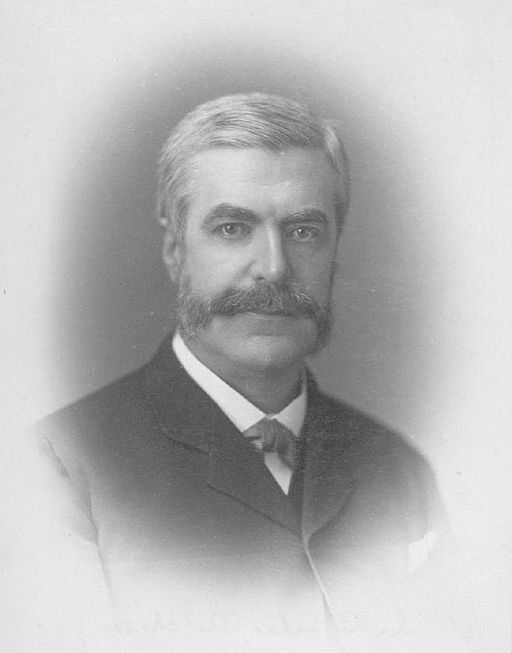Source
This poem was published in the Civil and Military Gazette (CMG), on 4 October 1886, signed ‘R.K.’ and the heading:
‘The projectile having passed beyond the range
of the earth’s attraction, the explosion of rockets
at its base being insufficient to propel it further,
must naturally revolve round the moon
in interplanetary space, until the end of Time;
From the Earth to the Moon. (condensed)’[From the Earth to the Moon was published by the celebrated French science fiction writer, Jules Verne, in 1867.]
The poem was not otherwise collected by Kipling, but is to be found in Rutherford (p. 336) and Pinney (p. 1823).
Background
The Civil and Military Gazette for 29 September 1886 had reported:
Our Simla correspondent telegraphs that it is officially announced that Sir Charles Aitchison will succeed Sir Steuart Bayley as Member of Council.
Rutherford notes that this appointment was an unexpected one: Sir Charles was already Lieutenant-Governor of the Punjab, a post to which a member of the Viceroy’s Council might normally aspire after serving for some time as a Councillor. On 5 October the CMG published an article on “The Simla Season”, dated 30 September, which suggested that:
… the step by which a Lieutenant-Governor fades into the light of common day, and becomes a mere Member of Council, though it is not without precedent in the North-West Provinces, is new to us in the Punjab, and sets us speculating as to in how many years, if the playing back process be fairly carried out, we may expect to see Sir Charles jostling his juniors in the ranks of the Assistant Commissioner!
Lord Dufferin, an adroit decision-maker, would have had good reasons for wanting Aitchison on his Council. Kay Robinson, the new Editor of CMG charged with putting more sparkle into the paper, must have written the article and encouraged Kipling’s squib of a poem.
The poem
The first two verses describe the career of a successful official in India, rising in the hierarchy like a rocket and at last falling to earth like the stick, to retire to England. The rest foresees the future career of Sir Charles if he continues to retrace his steps down the ranks. After eighty years he will have reached the lowest level, and may then ascend again, to repeat the cycle endlessly, like a comet circling the Sun or Verne’s spaceship orbiting the moon.
Notes on the Text
A whizz—an upward progress quick … And, after all, a burn-out stick falls …
Almost at the end of his career, in 1933, Kipling used the same metaphor in “The Bonfires”:
We know the Rocket’s upward whizz,
We know the Boom before the Bust,
We know the whistling Wail which is
The Stick returning to the Dust.
Groves of the Evangelist St. John’s Wood, with Kensington or Brompton, fashionable London districts where high-ranking Indian civil servants might be expected to retire.
Nous avons changé tout cela “We have changed all that” (French). This is a quotation from the play Le Médecin Malgré Lui (The Doctor in Spite of Himself) by Molière (1622-1673).
teste witness (Latin).
D.C. District Commissioner.
cess local tax.
‘stunt’ Assistant Commissioner.
E.A.C. Extra Assistant Commissioner (the most junior administrative grade).
[P.H.]
©Philip Holberton 2020 All rights reserved
